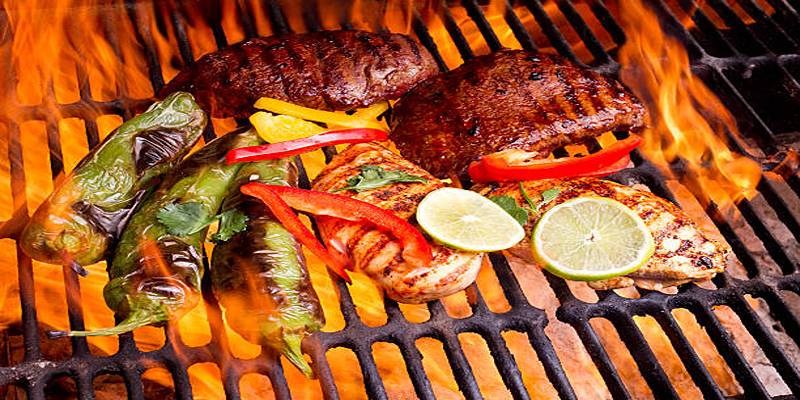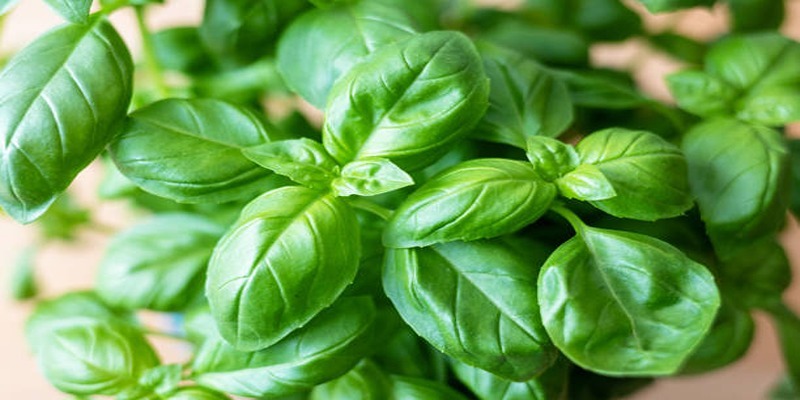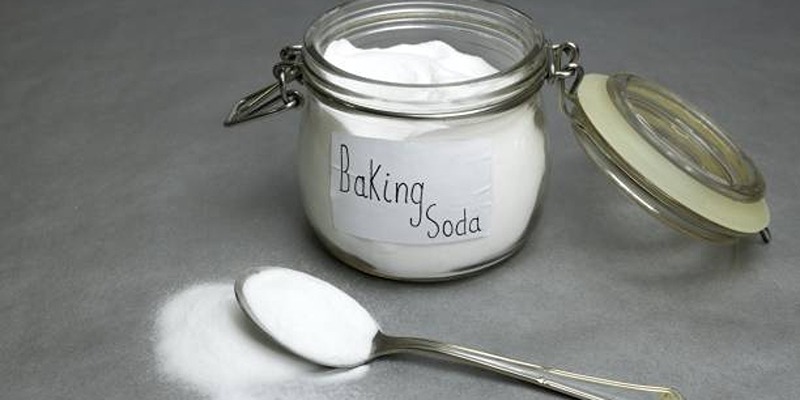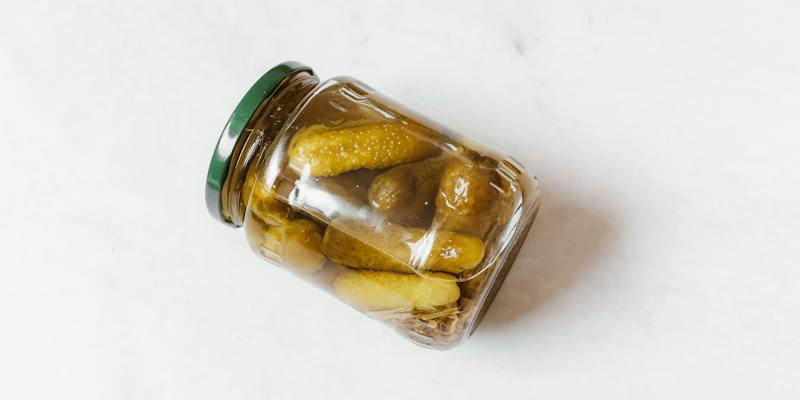Fundamentally, sweet pickles are vegetables or fruits that have been preserved, typically through marination in vinegar or fermentation in a saltwater solution. This method has been a part of numerous cultures for food preservation since its inception and is embraced globally. By submerging the food items in brine (an answer of salt in water with great attention) or layering them with salt, the conventional method is followed. By lowering the food's moisture content, and this dehydration method reduces its susceptibility to spoilage. Food preservation often progresses through pre-soaking it in brine before transferring it to a vinegar solution.
Preservatives such as sodium benzoate or EDTA may be incorporated into commercial pickles to protract their shelf life. In contrast, preservative agents are produced by the food during the natural fermentation process. In addition to preserving food, the pickling spices process effectively transforms its texture, flavor, and taste, frequently augmenting inherent tastes and imparting a distinctive acidic quality.
Origin of Pickling
An ancient technique developed by the ancient inhabitants of Mesopotamia spanned approximately 4,000 years and surpassed geographical boundaries. They identified a method for conserving cucumbers, which involved submerging them in a sour brine. Almost immediately, this method became an integral part of culinary traditions worldwide. Christopher Columbus, among others, is credited with introducing sweet pickles to the Americas.
However, pickling encompasses more than just cucumbers. This time-honored method imparts fish, fruits, meats, and dairy products to the list of foods it preserves. Pickling is fundamentally concerned with extending food's shelf life, which renders it a dependable companion for extended journeys or a method to enjoy seasonal produce throughout the year.
The process of pickling spice is a fusion of science and art. The process involves submerging fruits or vegetables in brine or vinegar and mixing pickling spices in a sterile jar. The flavors are given sufficient time to combine in this mixture, which is not hastily done, thus yielding the cherished sourness associated with sweet pickles.
Heartburn and Digestive Issues
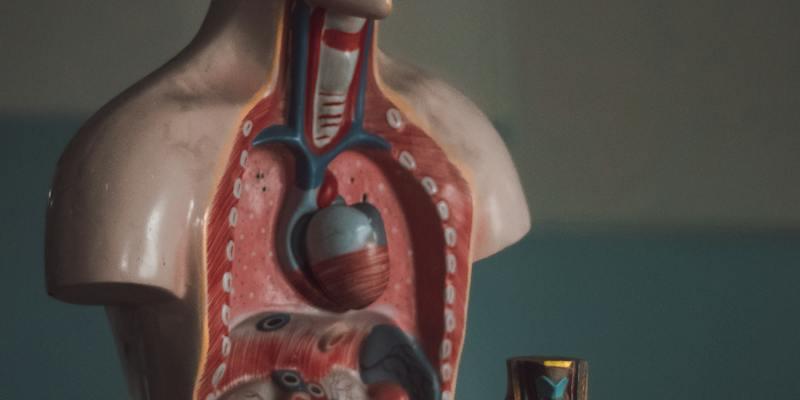
Although pickles are tasty, they may not appeal to all individuals. According to Harvard Health Publishing, heartburn can be induced by acidic foods, such as those preserved in vinegar (as in numerous pickles). The primary cause of this sour adverse effect is the sharp, acidic characteristics of vinegar, which renders pickles made with vinegar a possible trigger for individuals afflicted with acid reflux disease (GERD). Individuals in this category should restrict their consumption of sweet pickles to a minimum or substitute fermented varieties.
You may also get indigestion from eating too many pickles. In rare cases, eating too much cucumber cucurbitacin can cause nausea, vomiting, and diarrhea. The 2012 Indian Journal of Medical Research article on this unusual reaction advised pickle juice consumption in moderation.
Burping
Pickles often cause burping. The digestive process in pickles causes this. Pickles' fibers and sugars ferment in the gut before eating. This process produces gas that may induce burping or flatulence. Eructation, or burping, is how the body naturally releases extra gas from the digestive system. 3-6 times following a meal, according to a 2018 research. Sugars like pickles and fiber-rich meals may enhance such frequency.
Further, one's method of pickle juice consumption may also play a role in this. Gastritis can be exacerbated by speaking or eating rapidly while chewing, as this can lead to the ingestion of additional air. A comparable result to the impact of pickles was observed in a 2021 survey where 70% of participants reported increased burping following consumption of carbonated beverages or rapid eating. These digestive effects have been observed in nations with high pickled food consumption, such as Japan and South Korea. In 2020, research identified an increased prevalence of minor digestive discomforts, including burping, among South Korean citizens who consume kimchi (a type of pickled vegetable), a staple food.
Increased Thirst
Because pickles are high in sodium, they often make you thirsty. Sodium, an electrolyte, maintains water levels. After eating salty foods like pickles, your sodium levels rise, making you drink more water. Thirsting helps your body repair electrolyte stability. In 2020, researchers discovered that the mind alerts thirst when blood sodium levels rise. This protective mechanism prevents dehydration and electrolyte imbalance.
Statistics show sodium-rich meals like pickles, chips, and pizza can dehydrate you. High-sodium snacks increase thirst by 25%, according to a 2019 fitness reporting file. Brand and variety affect pickle sodium content. Typical dill pickles comprise 300 milligrams of sodium or 20% of the everyday encouraged intake. More than just pickles—a 2018 global survey discovered that processed meals account for 75% of Western countries' sodium intake.
Might Lead to Gas

Sometimes, pickles cause gas. Cucumbers, the main ingredient in pickles, contain cucurbitacin. In January 2015, the Middle East Journal of Digestive Diseases reported that cucurbitacin may cause gas and other digestive symptoms. All pickles, including fermented and vinegar-based ones, contain cucurbitacin, which may cause this unpleasant symptom. The pickling spice method matters. Fermenting pickles may increase gas production. Due to their high probiotic bacteria content, these pickles aid digestion. These beneficial bacteria can increase gas production in the gut despite their benefits. Probiotics can be both healthy and gas-producing, according to Cleveland Clinic research.
Bloating
An additional prevalent ailment linked to the consumption of pickles is bloating. Frequent causes of this sensation of fullness are gas and its accumulation in the gastrointestinal tract, awaiting expulsion. Despite this, pickles may also contribute to feelings of fullness in the abdomen. The high sodium content in pickles substantially contributes to this sensation. The ability of sodium to encourage water retention within the body is well-known.
Sodium overdose can cause the body to retain an abnormal amount of water, which can ultimately cause swelling. Such areas as the face, hands, feet, and ankles are frequently affected by this swelling. According to renowned food, fitness, and nutrition consultant Heather Mangieri, consuming even a small amount of pickles can result in discernible consequences. Mangieri asserts that merely two pickles can provide more than fifty percent of the maximum intake of sodium recommended daily. The probable cause of the bloating from pickles is their elevated sodium content.
